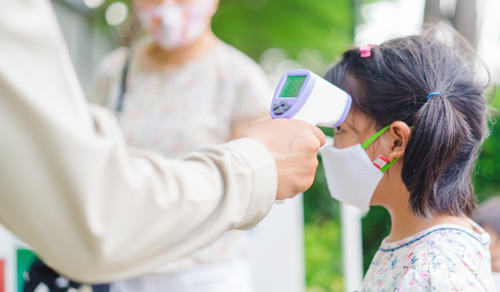Districts across the nation are rolling out school reopening plans with provisions to keep students safe. But the school leaders charged with implementing those plans have little confidence those provisions will work.
According to a National Association of Secondary School Principals poll of 1,450 principals, just 35.2 percent indicated they were somewhat confident or extremely confident in “their school/district’s ability to preserve the health of staff and students as schools physically reopen in the fall.” A similar percentage (34.9 percent) indicated they were somewhat unconfident or not at all confident.
Related content: 5 ways technology can help schools meet CDC guidelines
“A principal’s primary and foundational duty is to keep students safe in school. Without that assurance, little real learning can take place,” said NASSP Chief Executive Officer JoAnn Bartoletti. “That only a third of principals feel confident they can provide that assurance under the current conditions should give us pause. They are being asked unreasonably to bridge a chasm between the realities of face-to-face learning and the need to safeguard the people in their school.”
The primary concerns shared by principals include challenges of maintaining six feet of distance on buses and in crowded classrooms, often in windowless rooms with recirculated air, and getting all students to comply consistently with mask rules and prohibitions against congregating.
Others voiced concerns about the safety of staff, especially those who are older and immunocompromised. By extension, there will be a shallower pool of substitute teachers during a time of extraordinary need.
Principals also expressed concern that resources would not be available to provide sufficient personal protective equipment and to regularly disinfect the building.
Elementary school principals in particular expressed concern about socializing very young students both to wear masks and see adults in masks, which can be disconcerting, and to maintain distance. “How do you tell a four-year old to social distance?” one principal asked. “What about if they are upset and need comforting?”
Still others recognize the challenges of COVID-19 having become politicized. “My fear is that the public will be looking at each measure as a political statement, and some will ignore the advice of health officials in regards to their kids just to prove a point,” one respondent shared. “I’m not looking forward to arguing with those who don’t take this seriously,” said another.
The poll, administered July 7-8, 2020, comes on the heels of the Trump administration’s demand that schools fully open in fall 2020 and a threat to withhold federal funding if they do not.
“This administration rarely misses an opportunity to demonstrate how out of touch it is with the reality of today’s schools,” Bartoletti said of Secretary Devos’s July 7 comments. “While schools were making the emergency pivot to remote learning while also continuing to feed students and provide support services, Betsy DeVos’s only concern was to divert public school relief funding to private enterprise. Now, as districts work to develop responsive and responsible reopening plans, she is pulling her head out of the sand just long enough to scold schools for not marching their students and educators recklessly into danger.
“The risks are real. And unlike current federal officials, local school leaders can afford neither the luxury of ignoring them nor the aloofness to treat our educators and students as political pawns. We encourage district leaders to create reopening plans in cooperation with their communities that prioritize the safety of students, educators, and all school stakeholders over political expediency. And we call on the CDC and Department of Education to provide more than their current vague guidance on reopening schools accompanied by the financial support to implement those guidelines.”
Material from a press release was used in this report.
- 4 ways to support work-based learning - April 23, 2024
- Prioritizing inclusivity in game-based learning - April 22, 2024
- Friday 5: Universal Design for Learning - April 19, 2024


